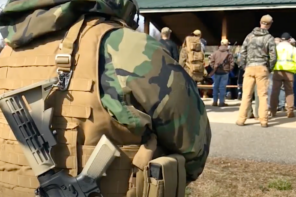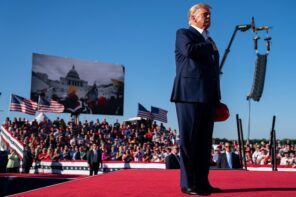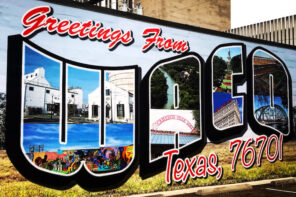The killing spree by Wade Michael Page on the Sikh Gurudwara in Milwaukee that left seven dead including Page’s own death in a hail of bullets is an act of Christian terrorism. Page was a member of a skinhead band, End Apathy, that advertised the evils of multiculturalism and advocated white power.
It is fair to call Page a Christian terrorist since the evidence indicates that he thought he was defending the purity of white Christian society against the evils of multiculturalism that allow non-white non-Christians an equal role in America society. Like the Oklahoma City bomber, Timothy McVeigh, and the Norwegian militant, Anders Breivik, Page thought he was killing to save white Christian society.
Though there is no evidence that Page was a pious Christian, that is true of many religious terrorists. If the hard-talking, swaggering al Qaeda militants can be called Muslim terrorists, certainly Page can be called a Christian terrorist.
Many of the al Qaeda activists—including the World Trade Center bomber Mahmud Abouhalima and the Iraq al Qaeda leader, Abu Musab al-Zarqawi—were attracted to the jihadi message not for reasons of personal piety, but because they were lured by the image of cosmic war. They saw themselves as religious warriors.
Wade Michael Page also gloried in the idea of war. The poster for his band, End Apathy, portrays a dead skinhead, lying in the street with police cars in the background. A banner in the poster states “Self Destruct.”

Like many religious terrorists, Page thought he was a soldier in a cosmic war. It is the image that Breivik tried to evoke in his manifesto justifying his attack on a Norwegian youth camp in 2011. Cosmic war was in the mind of McVeigh when he bombed the Oklahoma City federal building in 1995, and it has been a part of the mindset of virtually every religious terrorist in recent memory—be they Christian, Jewish, Muslim, Buddhist, Hindu, or Sikh.
Like Timothy McVeigh, Page thought himself a soldier for Christendom. And like McVeigh, Page had been a real soldier.
Page, who was originally from Colorado, served in the army from 1992 to 1998, stationed at Fort Bliss in Texas and Fort Bragg in North Carolina. Initially he was a sergeant as a repairman for the Hawk missile system. Then he became a specialist in “psyops”—psychological operations. Though it is not clear what Page did in this branch of the service, in general psyops attempts to influence an enemy or a foreign audience through propaganda or other means of influencing attitudes.
Though he never saw conflict, he was clearly in some sort of personal skirmish, since he was discharged from the army in 1998 for “patterns of misconduct.” He then relocated to Chicago and then to Milwaukee where he joined the skinhead underground and started a band. When he entered the Sikh Gurdwara (also called a “temple”) on Sunday, he was dressed in military fatigues and carried a military-style semi-automatic pistol. It is not clear whether he thought that Sikhs were Muslims, since male Sikhs are bearded and wear turbans, or whether he was angry at contemporary multicultural society that allows for ethnic diversity. Either way, it was clear that he was on a military mission to save white Christendom.
His imagined war was more personal than just cultural grievances, however. The great struggle gave him a role. He became a warrior, something that he was not able to achieve in his failed military career.
This is a common pattern among activists involved in religious terrorism. The cosmic war of great religious struggle provides an imagined arena of conflict for warriors in search of a role. It appeals to former soldiers abandoned by wars that have come to an end, and it appeals to want-to-be warriors like Page.
Some of the best known jihadi terrorists were part of the 1980s Afghan struggle of the Muslim mujahidin against the Soviet occupation. Osama bin Laden went to the battlefield to establish a guest house for foreign Muslim fighters drawn to the region. He called the hostel al Qaeda, “the base.” Among the foreign fighters drawn to the Afghan conflict was an Egyptian, Mahmud Abouhalima, who later lived in the United States, where he became one of the chief organizers of the 1993 attack on the World Trade Center.
Baruch Goldstein, the Jewish terrorist who killed scores of innocent Muslims praying at the interfaith Shrine of the Cave of the Patriarch in the West Bank city of Hebron, had formerly served in the Israeli army. Rev Michael Bray, an anti-abortion activist who was alleged to have been the author the Army of God handbook, had enlisted in the American military but was not able to complete his training. The Christian anti-abortion war gave him his own battlefield. McVeigh, the Oklahoma City bomber, was a frustrated former American soldier who had served in the Gulf War, and who was reported to be disconsolate and lost when the war was over. His life was given renewed meaning in discovering the cosmic war of Christian activists against the imagined evils of secular politics in the United States.
What is compelling about the idea of cosmic war is that it is both social and personal. It relates to great political issues. But it also provides individuals with a goal and purpose in life. And for many otherwise lost souls, this is a significant source of meaning indeed. For Wade Michael Page, as for Timothy McVeigh, Anders Breivik, and all of the other religious terrorists of recent years, the grand scenarios of cosmic war gave them not only political clarity but also meaningful personal roles. Alas, these roles were short-lived. They were also tragic, violent, and sad.




